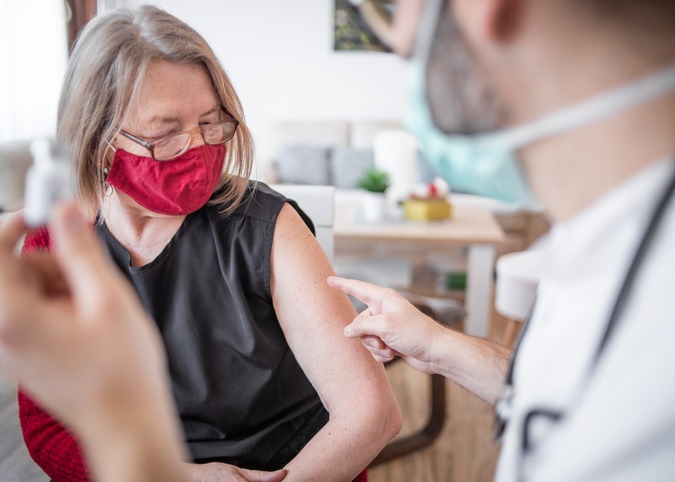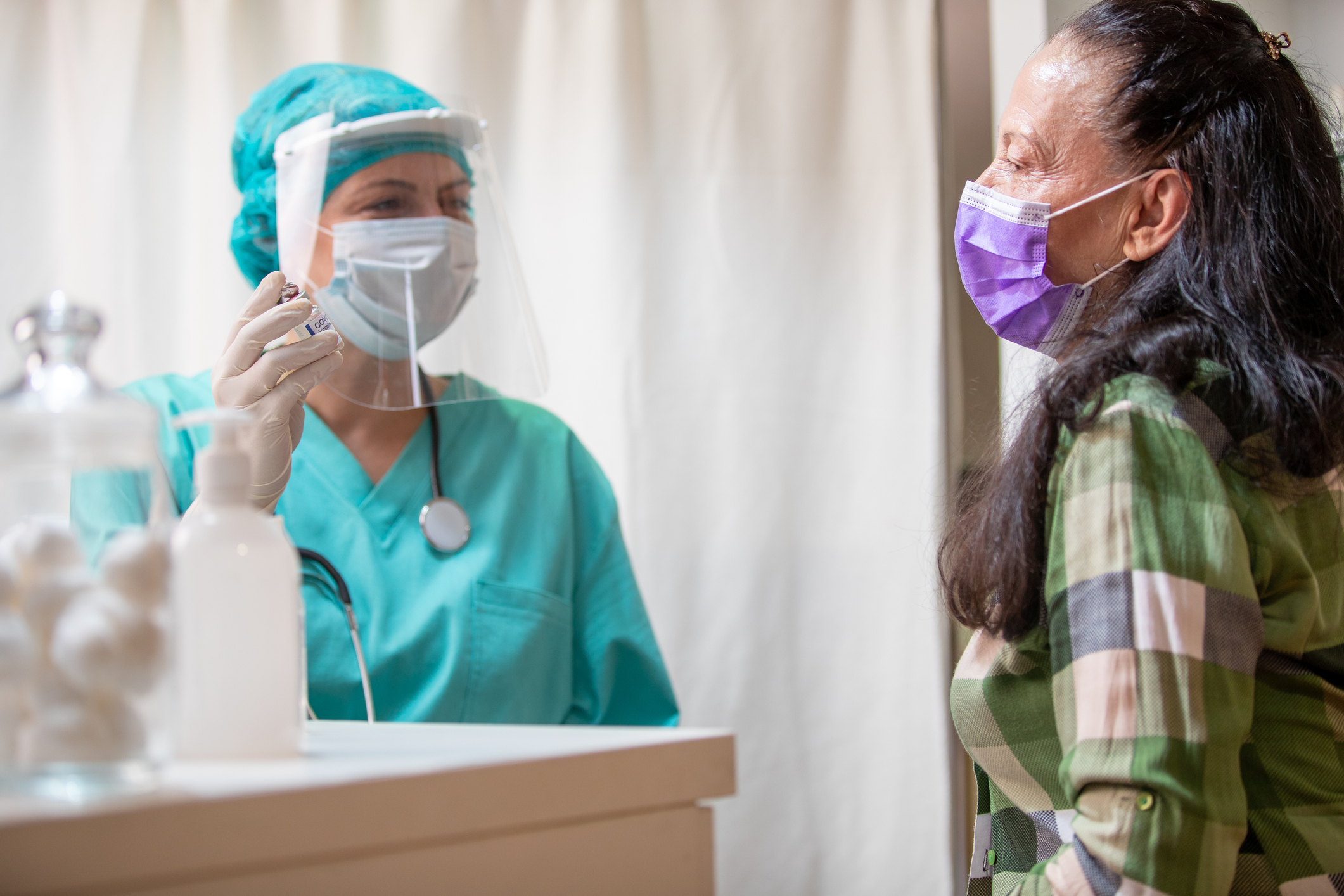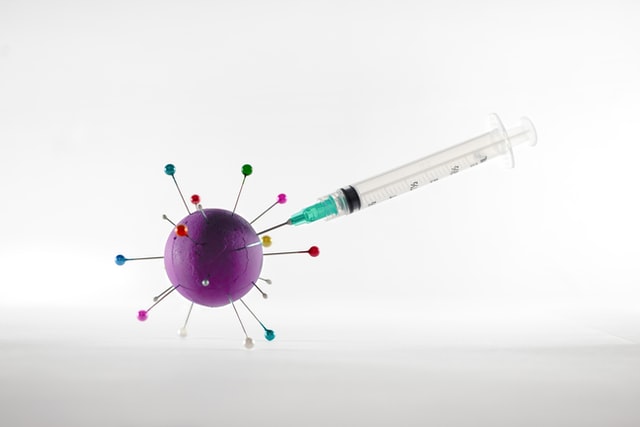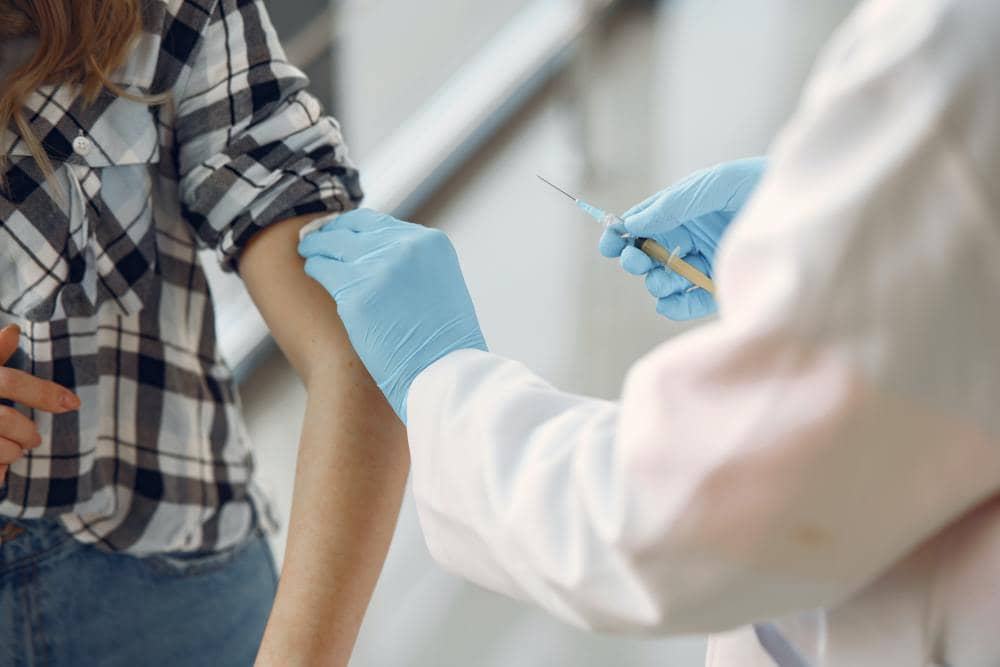Overview
If you're looking to get pregnant, you may be worried about some of the claims around the COVID-19 vaccine – one of the biggest being that it can cause infertility.
There’s no evidence that taking the vaccine can affect future pregnancy, the health of your unborn baby, or cause males to become less fertile.
Read on to find out more about common fertility myths about the COVID-19 vaccine and why it’s safe.
1. The COVID-19 vaccine can cause miscarriages
The claim: Some miscarriages have been reported to vaccine-monitoring schemes in both the US and the UK.
The facts: The COVID-19 vaccine does not make miscarriages more likely.
Sadly, miscarriages are more common than people may think. Research shows that the miscarriage rate among vaccinated people is around the same as the expected rate across the general population, which is 12.5% for the vaccines Pfizer and Moderna.
There’s less data available for the AstraZeneca vaccine, so if you're pregnant or there's a chance you could be, you'll usually be offered the Moderna or Pfizer vaccine. But what we do know about AstraZeneca so far is in line with the findings for Moderna and Pfizer.
2. The COVID-19 vaccine collects in the ovaries
The claim: In a study, rats were given a very high dose of the COVID-19 vaccine – 1,333 times higher than the dose given to humans. It was said that a large concentration of vaccine had been found in the rat’s ovaries, which supposedly caused the release of “toxic spike proteins”.
The facts: 48 hours after injection, only 0.1% of the total dose of vaccine was found in the rat’s ovaries. Far more was found at the injection site – as expected – and in the liver, which is where your body gets rid of waste.
As this study was carried out in rats, not humans, it's unclear what happens in humans. But, it's not scientifically likely for the vaccine to accumulate in the ovaries.
3. A male’s sperm count may be affected by the COVID-19 vaccine
The claim: Some social media accounts spread false information by claiming that the COVID-19 vaccine could cause ‘mass male infertility’.
The facts: The COVID-19 vaccine does not cause male fertility problems either. A small study of 45 healthy men showed that there were no significant changes in sperm quantity or sperm movement after getting the jab.
4. It’s not safe to breastfeed if you take the COVID-19 vaccine
The claim: Early on in the pandemic, the recommendation for breastfeeding and pregnant women was to err on the side of caution when it came to taking the COVID-19 vaccine due to a lack of safety data. Naturally, once pregnant women were encouraged to take the vaccine, a number of people were worried about the potential risks.
The facts: It’s not possible to get COVID-19 from the jab, and you won’t pass it on to your baby when you breastfeed either. In fact, after vaccination, your breast milk will contain your antibodies that protect you against getting the COVID-19 infection, which could also protect your baby.
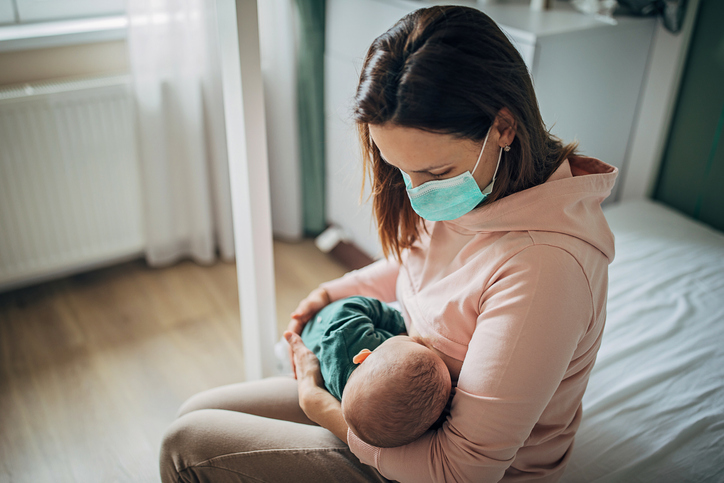
5. The COVID-19 vaccine can attack the placenta
The claim: The spike protein in the Pfizer and Moderna COVID-19 vaccines has been compared to another protein in the body called syncytin-1, which is involved in forming the placenta. The theory is that this protein might cause the antibodies – produced in response to the COVID-19 vaccine – to attack a developing pregnancy in the placenta.
The facts: There’s no evidence that the vaccine causes any risk to the placenta. Syncytin-1 and the coronavirus's spike protein may be similar to each other, but no more so than any of the millions of other proteins found in the body. Antibodies are usually well designed not to attack the wrong proteins and there's no evidence to suggest they might attack the placenta.
Outlook
There’s no evidence to suggest the COVID-19 vaccine can affect your chances of having a baby, but there are other reasons why you and your partner might be struggling to conceive.
Read more about the causes of male infertility and female infertility.
When to speak to your doctor about the COVID-19 vaccine and infertility
There's no reason that the COVID-19 vaccine will affect your fertility, or the health of your baby if you’re pregnant. In fact, it’s safer for you to get the COVID-19 vaccine to avoid any risks of getting the virus during pregnancy.
There are a range of common side effects you may notice after your jab, including pain and soreness of the arm, or a headache, which shouldn’t last for more than a few days or be very severe. If you notice any uncommon side effects that worry you, speak to your doctor.
It’s also a good idea to talk to your doctor if you’re having trouble getting pregnant. They can help you work out what might be affecting your fertility.
Your health questions answered
Does the COVID-19 vaccine affect the menstrual cycle?
Answered by: Healthily's medical teamSome women have reported changes to their usual menstrual cycle, including painful, heavy or unexpected periods after getting their COVID-19 vaccine, although most find that their cycle returns to normal the following month. Some reproductive experts suggest the chemical signals circulating around the body after vaccination may be affecting the immune cells in the lining of the womb, causing it to shed. So far there’s no scientific evidence to back up this theory, but researchers are closely monitoring it.
Can the COVID-19 vaccine affect future pregnancy?
Answered by: Healthily's medical teamThose carrying a baby, or looking to conceive in the future, are strongly encouraged to get their COVID-19 jabs thanks to growing safety data from pregnant women all over the world who have received the vaccine without any problems.
The Pfizer and Moderna vaccines are preferable if you’re pregnant – they’ve been used more widely than the AstraZeneca vaccine, which means there’s more safety data available. But if you’ve already had your first dose of the AstraZeneca vaccine – and you didn’t notice any serious side effects – it should be safe to receive your second dose.
Key takeaways
- there are many fertility myths about the COVID-19 vaccine, which aren’t backed up by scientific evidence
- there’s no reason to suggest the COVID-19 vaccines cause male or female infertility
- it’s safe for pregnant women to get the vaccine, but the Pfizer or Moderna vaccines are preferable to AstraZeneca
- you can breastfeed after the COVID-19 vaccine and it won’t give you or your baby COVID-19
- while more research is needed, some women have noted changes to their menstrual cycle after getting the COVID-19 vaccine, but this usually goes back to normal the following month


